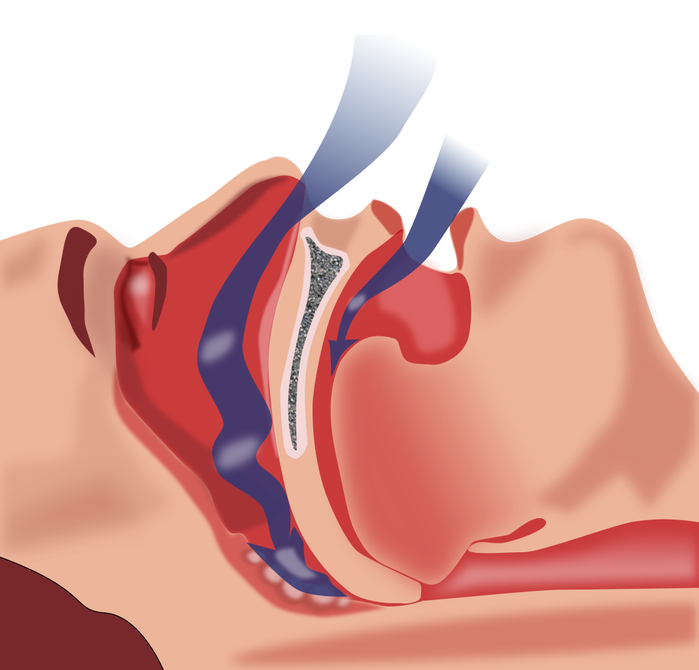Beneficial Treatment for Depression in People Who Snore
Sleep apnea is a common sleep disorder that results from disruption of breathing during sleep. These disruptions can last from a few seconds to minutes and occur many times during the night. People affected by this disorder are usually unaware of their struggle to breathe during the night. Due to multiple disruptions in sleep, the affected person becomes sleepy and exhausted the next day. These symptoms are usually first detected by a family member. Because of their struggle for air, the victims make choking or snoring noises throughout their sleep that can be quite unpleasant and noticeable to others living with them.
One type of sleep apnea, obstructive sleep apnea (OSA), results from the physical blockage of the airways to the lungs. Some risk factors for the development of OSA include being overweight, having allergies, enlarged tonsils, and more. Sleep apnea can be medically diagnosed with an overnight sleep study. Treatments may include lifestyle changes, surgery, assistance from breathing devices, and others. One commonly used breathing device is a continuous positive airway pressure (CPAP) machine, which is worn overnight to apply continuous pressure in order to keep the airways open for breathing. Sleep apnea treatments are important because untreated patients have increased risks of heart attacks, strokes, diabetes, and obesity. Since people with sleep apnea cannot get a good night’s rest, they can often feel drained and unhappy throughout the day. These symptoms of depression can consequently lead to the development of depression over time.
One type of sleep apnea, obstructive sleep apnea (OSA), results from the physical blockage of the airways to the lungs. Some risk factors for the development of OSA include being overweight, having allergies, enlarged tonsils, and more. Sleep apnea can be medically diagnosed with an overnight sleep study. Treatments may include lifestyle changes, surgery, assistance from breathing devices, and others. One commonly used breathing device is a continuous positive airway pressure (CPAP) machine, which is worn overnight to apply continuous pressure in order to keep the airways open for breathing. Sleep apnea treatments are important because untreated patients have increased risks of heart attacks, strokes, diabetes, and obesity. Since people with sleep apnea cannot get a good night’s rest, they can often feel drained and unhappy throughout the day. These symptoms of depression can consequently lead to the development of depression over time.
New studies on the treatments for sleep apnea show that the use of CPAP machines may have beneficial effects for alleviating symptoms of depression. A study conducted by a group from the American Academy of Sleep Medicine showed that 73% of their OSA patients expressed clinically important depressive symptoms, which elevated as their sleep apnea became more severe. In this study, the effects of CPAP therapy on depression and “self-harm feelings” were examined in patients through a long-term program.
After a period of three months, the majority of patients showed improvements in their depressive symptoms and thoughts. Their results support the idea that by targeting the shared symptoms of OSA and depression, CPAP therapy can be not only beneficial for better sleep quality but also healthier for mental health and quality of life. The study also suggested that OSA is under-diagnosed in depression management, a factor that leads to persistent symptoms and unnecessary use of antidepressants. Therefore, it is important for people with signs of depression to be screened for OSA and considered for CPAP therapy.
After a period of three months, the majority of patients showed improvements in their depressive symptoms and thoughts. Their results support the idea that by targeting the shared symptoms of OSA and depression, CPAP therapy can be not only beneficial for better sleep quality but also healthier for mental health and quality of life. The study also suggested that OSA is under-diagnosed in depression management, a factor that leads to persistent symptoms and unnecessary use of antidepressants. Therefore, it is important for people with signs of depression to be screened for OSA and considered for CPAP therapy.
Featured Image Source: Unsplash
RELATED ARTICLES
|
Vertical Divider
|
Vertical Divider
|
Vertical Divider
|






